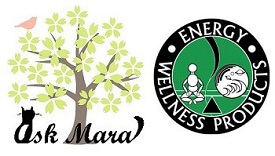Below are the Orr Center’s 10 Pillars to Brain Wellness.
Brain wellness is super essential, especially with the rise of dementia and Alzheimer’s. Below are tips, herbs, and lifestyle habits to help you do that.
- Socialize – volunteer, join a club, take a class, interact with others.
- Exercise – moderate physical activity protects against cognitive decline.
- Rest – the brain needs rest, so try to take one day a week that is largely stress-free.
- Manage Stress—Stress contributes to many chronic diseases, and chronic painful stress can lead to shrinkage of the brain memory centers brain’s memory centers.
- Practice Moderation – especially where alcohol and calories are concerned.
- Share Your Gifts – Engage in activities you are good at, which boosts confidence and self-esteem.
- Avoid Accidents – protect your head at all times from injury.
- Establish a Health Care Team—When you get sick, make sure you have a team of people and doctors to assist you in getting well.
- Practice Brain Wellness – read, write, do puzzles, learn new things.
- Get Spiritual – meditation is one of the many ways to achieve this. Dr. Bender says, “Meditation changes the brain for the better.”
 More Tips for Brain Health
More Tips for Brain Health
In addition to the above pillars, you may also include the following lifestyle habits that can contribute to brain health:
- Get quality sleep: Adequate and restful sleep is essential for overall brain function and memory consolidation.
- Maintain a healthy diet: Consuming a balanced diet rich in fruits, vegetables, lean proteins, and healthy fats can support brain health.
Incorporating these tips into your lifestyle can contribute to maintaining and supporting brain health.
When considering supplements for brain health, it’s essential to prioritize ones backed by years of historical use and current scientific research and evidence. Some commonly studied and potentially beneficial supplements for brain health include omega-3 fatty acids, curcumin, resveratrol, and vitamin D. Additionally, certain vitamins such as B vitamins and antioxidants like vitamin E may also support brain function. There are even studies suggesting lion’s mane (a mushroom) may boost memory and thinking. Huperzine A and Ginkgo Biloba have also been used for brain health. Also, in Ayurvedic, they have historically used Gotu Kola to promote mental clarity and memory. It is also important to be familiar with the side effects of over-the-counter as well as prescription drugs. New evidence on antacids like omeprazole is now being linked to Alzheimers.

 More Tips for Brain Health
More Tips for Brain Health